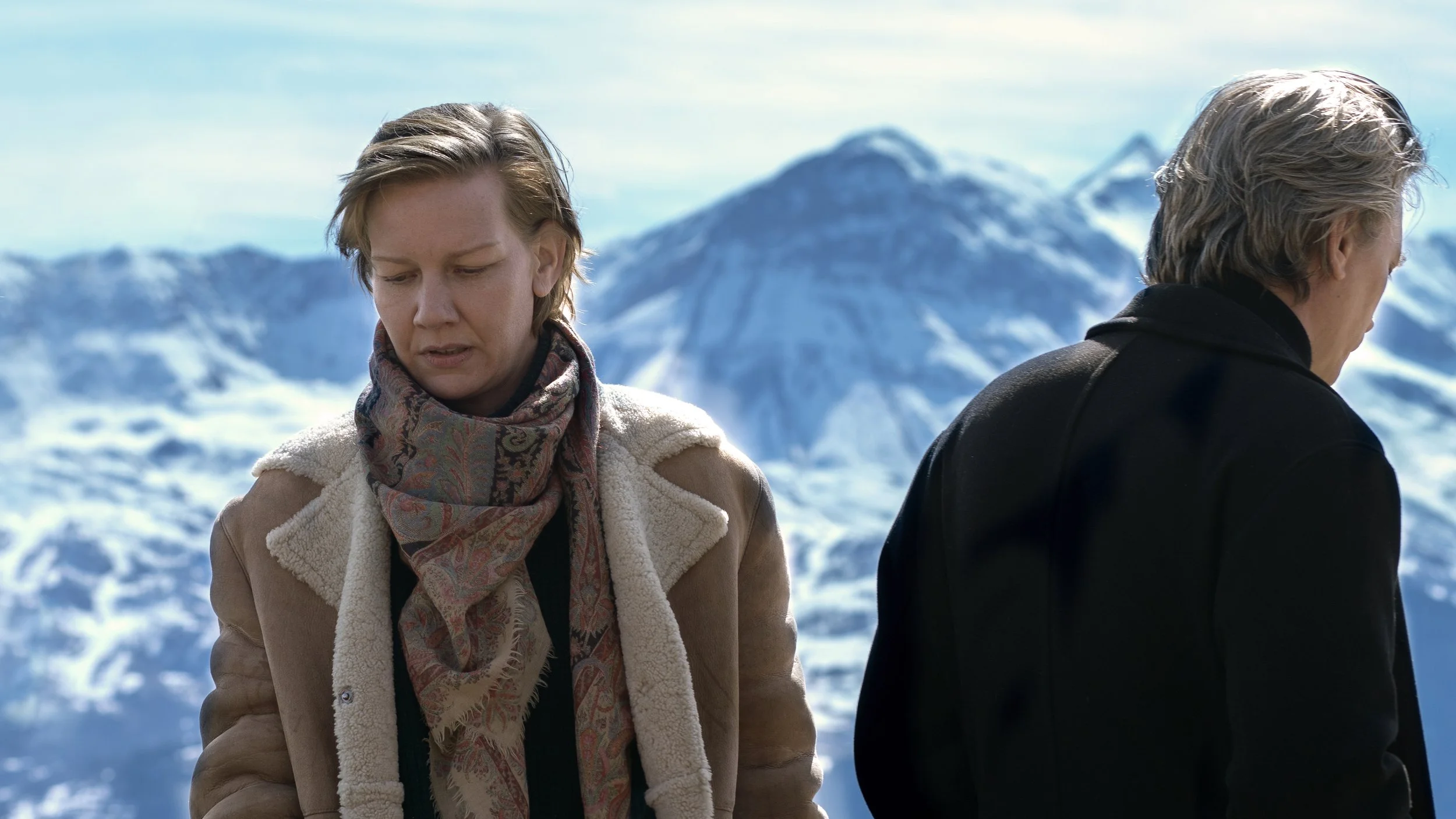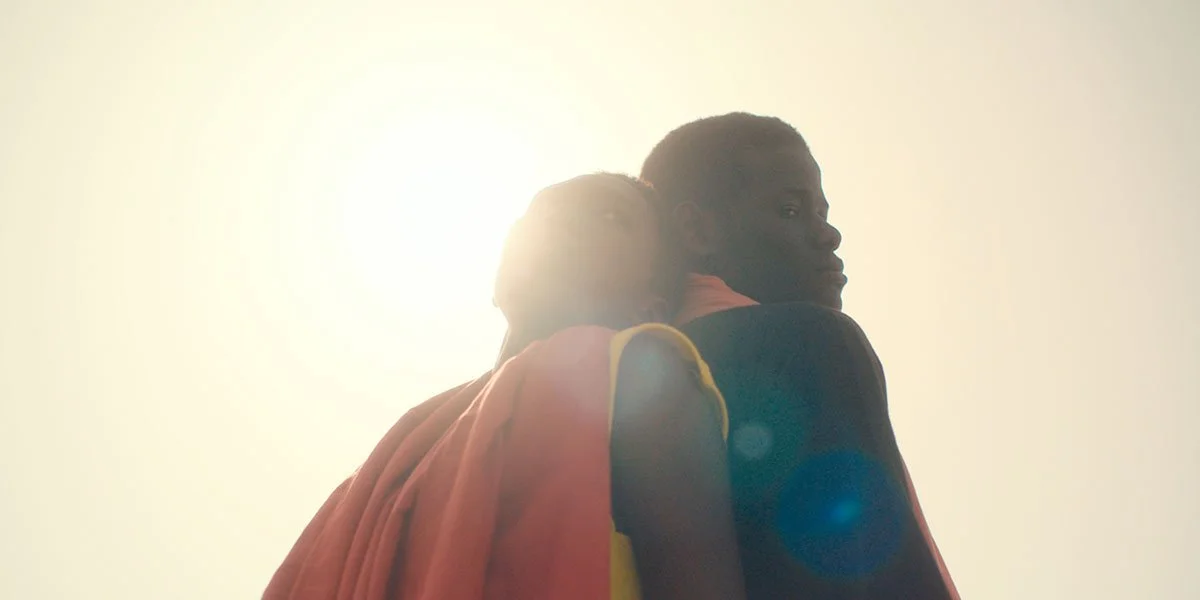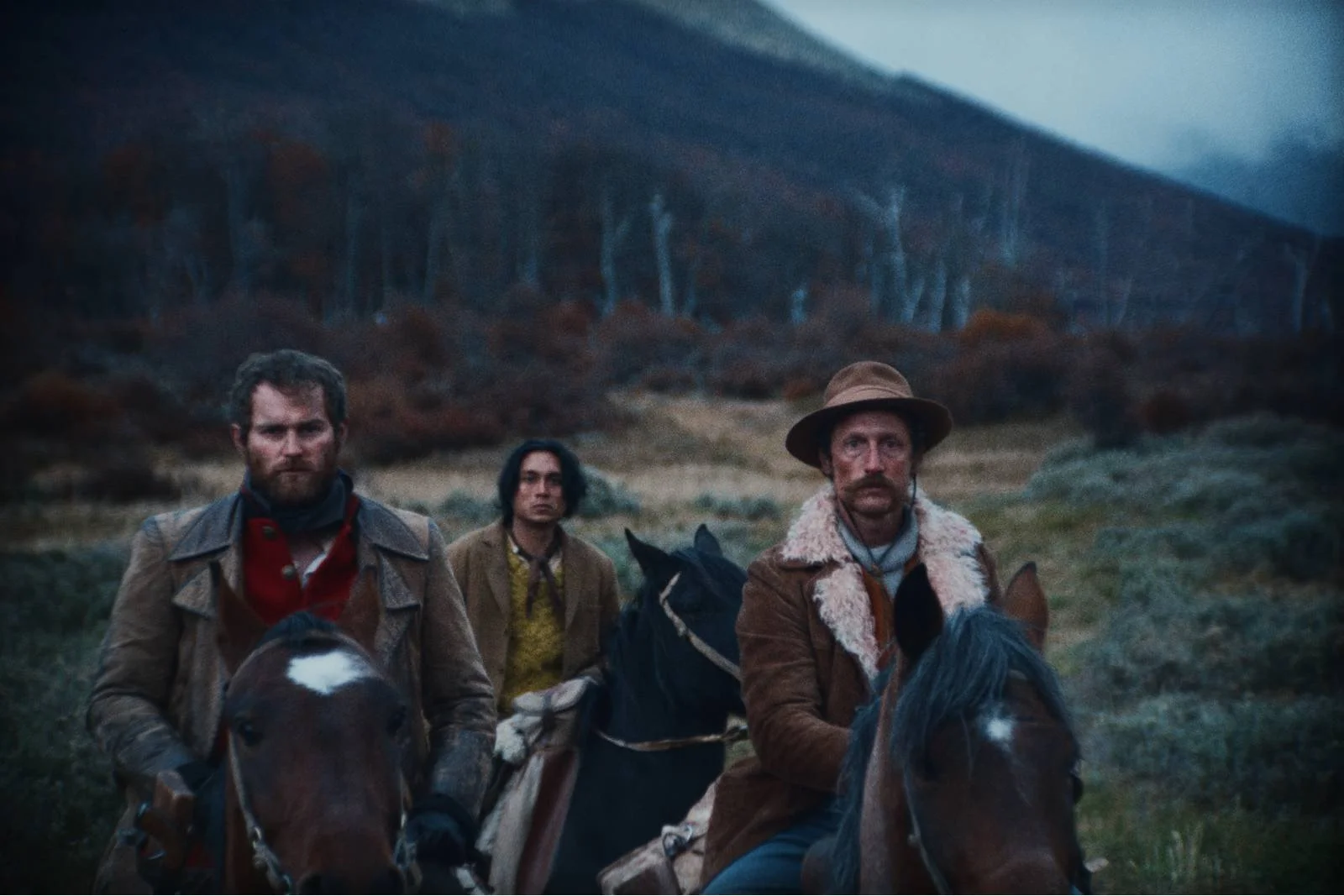First Impressions: Cannes Film Festival 2023
Courtesy of Cannes Film Festival.
Today, Foremost Film heads to the sunny coast of the French Riveria for the tail-end of the 2023 Cannes Film Festival –– better late than never, right? As the festival winds down, its last few days provide an advantageous opportunity to catch up on the buzziest titles (and avoid the ones that have already disappointed critics and audiences.)
As we make our way through the final days of this year's 76th edition of Cannes, readers can catch the first impressions of the titles we see, constantly updating as the festival continues, all leading up to the closing ceremony on Saturday, May 27th and the announcement of this year's big winners.
*Continuously updating*
Courtesy of Cannes Film Festival.
‘Anatomy of a Fall’
Director: Justine Triet
*Palme d'Or Winner*
In a time when audiences are more excited than ever to consume true crime media, French filmmaker Justine Triet has just become the third woman ever to win the Palme d'Or for her crime thriller, Anatomy of a Fall. Starring Sandra Hüller (serving a very different domesticity than her role in The Zone of Interest) as an author and mother who has been indicted for the murder of her husband after he has fallen? Or been pushed? Out of the window of their chalet in the French Alps.
Anatomy of a Fall boasts impressively confident filmmaking, with performances and a screenplay that constantly evolve and bring forth new information about the case in the most engaging ways, particularly during the film's final act, when the son's perspective brings an emotional profundity into the courtroom where much of the movie takes place. The scandal built around the mother Sandra's case is particularly confrontational of the treatment women receive in the courtroom, especially in this case where many argue that Sandra was directly inspired for the crime by a novel that she had already written. Unfortunately, Anatomy of a Fall could be too talky and stationery for audiences impatient with courtroom thrillers, particularly in the film's VERY dialogue-heavy middle section and dense 2.5-hour runtime. Anatomy of a Fall wild marks Neon's fourth Palme d'Or winner in a row!
Courtesy of Cannes Film Festival.
‘Banel & Adama’
Director: Ramata-Toulaye Sy
First-time filmmakers rarely end up in the Main Competition at Cannes, so Banel & Adama was at the top of our list to see during the festival. Directed by the Senegalese-French Ramata-Toulaye Sy, Banel & Adama begins as a dream and ends in a nightmare, centering around the young couple from which the film takes its name. Set in an unforgiving desert in Senegal, Banel and Adama wish to shake off the shackles of religious and social expectations by moving away from their village and creating a home filled with love for one another. However, Adama is divined to become the next leader of their tribe, a responsibility that the couple wishes to reject. When an unexpected drought plagues their community –– causing the death of much of their livestock along with members of their tribe –– many claim that it is due to Adama's choice to bypass his god-given role as their leader.
Although straightforward in the narrative, Banel & Adama delivers an impressive poeticism through its stunningly naturalistic cinematography and focus on Banel’s female perspective. The film shifts gears from a pastoral love story to an almost psychological thriller as the world around Banel crumbles. A memorable early quote from Banel is, “I love as a woman can love,” setting the stage for where the movie’s main focus lies. Overall, Banel & Adama works as a near spin on Romeo and Juliet that audiences have never seen.
Courtesy of Cannes Film Festival.
‘Firebrand’
Director: Karim Aïnouz
With his English-language debut, Firebrand, Karim Aïnouz explores the tumultuous life of Katherine Parr, the final of King Henry XIII's six wives. Known for her wishes for "radical" Protestant reforms in England, Firebrand focuses mainly on the end of King Henry's days and a short period when a warrant was out for Parr's arrest. Alicia Vikander stars as Parr and an unrecognizably grotesque Jude Law as King Henry.
While Aïnouz takes excellent care in recreating the look and feel of 16th-century England, Firebrand does little to stand out amongst other period dramas capturing the same era, other than its allegiances which lie with the perspectives of women, often overlooked in historical sources during the time. Vikander serves up a perfectly solid performance as the iron-willed Parr, but Law's interpretation is just as egotistical and deranged as the real-life Henry, producing some of the movie's most memorable moments. Firebrand works overtime to show off the brutal political games of the English court, but the film lacks anything remarkably fresh or groundbreaking to the "bodice-ripper" conversation in cinema.
Courtesy of Cannes Film Festival.
‘La Passion de Dodine Bouffant’ (The Pot-au-Feu)
Director: Tran Anh Hung
*Best Director Winner*
La Passion de Dodine Bouffant begins with an extended scene of the preparation of a sumptuous four-course French meal created in a gorgeous 19th-century chateau, where a roving camera hovers over beautiful produce and shining copper pots with just as much fascination as its focus on the film's central characters, played by the bonafide icons of modern French cinema, Juliette Binoche and Benoît Magimel. A tender romance capturing the long-overdue commitment between a gourmet chef and his cook, La Passion de Dodine Bouffant is a love letter to the time-spanning grandeur of French culinary arts.
Set mainly in the summertime, La Passion de Dodine Bouffant is brimming with lovely warm lighting and tones, emphasizing the great tenderness and care its protagonists harbor in their kitchen sanctuaries. French-Vietnamese director Tran Anh Hung loves to show off his devotion to portraying deeply personal, intimate relationships, which he does brilliantly with Binoche and Magimel. However, while La Passion de Dodine Bouffant is a visual and romantic feast that mirrors the immaculate meals served by its characters, the movie does little to push boundaries or depict anything formally daring, overall creating a fine film that would be great to show to mothers or aunts who need a break from Food Network programming.
‘L’été Dernier’ (Last Summer)
Director: Catherine Breillat
Once at the forefront of the New French Extremity movement, filmmaker Catherine Breillat's latest film, Last Summer, seems watered down compared to the auteur's earlier works and her controversial statements of the last few years. The movie stars the increasingly prolific Léa Drucker as a successful lawyer who has an affair with her unruly 17-year-old stepson, a concept with plenty of provocation on paper that cannot back it up on-screen.
With fascinating narrative connections to the (much more robust and hypnotic) May December, many audiences could be turned off by the incitations of Last Summer. Yet, how the film's plot unfolds and the unconvincing romance at its center softens its subversive blows. Only the second half of Last Summer instills an intense discomfort or tension within the viewer, as its Cannes screenings proved when laughs could be heard through most of the movie's most scandalous scenes. While the film plays with intriguing power dynamics that play out between adults and children, it does not delve deeply enough into those concepts to create something new or interesting. Based on a 2019 Danish film called Queen of Hearts that faired much better in critical reception, maybe Breillat should have headed in a different direction with her remake.
Courtesy of Cannes Film Festival.
‘Los Colonos’ (The Settlers)
Director: Felipe Galvez
Another first-time filmmaker at Cannes, the Chilean Felipe Galvez's Los Colonos takes a look at the history of colonization in Chile's farthest corners of Patagonia through the lens of a Revisionist Western. Set in 1901, the film centers on an unlikely trio of men from varying backgrounds: a young Mestizo laborer, an egomaniac Scottish soldier, and a wily American "hit man," who have been hired by a wealthy Spanish landowner to rid his vast territory of all Indigenous populations.
Shot on grainy film stock that deepens the colors of the film's natural locations, Los Colonos juxtaposes tight closeups of its actors with massive establishing shots that capture the desolate beauty of Patagonia. Through the experiences of its main characters, the movie confronts the exploitation and violence used by European settlers to "civilize" South America and establish the damaging foundations of its nations. The questions of morality asked by Los Colonos transcend its period setting and extend into many societies worldwide today. MUBI just purchased the distribution rights for Los Colonos in the United States and many other countries.
Courtesy of Cannes Film Festival.
‘May December’
Director: Todd Haynes
American auteur Todd Haynes again examines the ins and outs of deeply intricate and insecure characters with his latest knockout, May December. The movie boasts a deliciously engaging story that revolves around the scandalous beginnings of Gracie and Joe, a longtime married couple with a significant age gap (frequent Haynes collaborator Julianne Moore and Charles Melton of Riverdale fame), along with Natalie Portman as Elizabeth, a television actress set to portray Gracie in an upcoming independent film.
Taking place in 2015, May December departs from the far-away period settings of Haynes's most recent work and features a new partnership with cinematographer Chris Blauvelt. Nevertheless, every frame of the movie is still enriched with Haynes's succulent sensibilities, including an all-out soundtrack that boosts May December to a renewed and exciting sort of melodrama, injected with plenty of laughs to push the movie into moments of high camp. Provocative subject matter and exquisite performances will surely aid in this movie creating stimulating conversation among audiences when it is released. Netflix picked up US distribution after its premiere, so we can expect May December to get a big awards play this fall.
‘Monster’
Director: Hirokazu Kore-eda
*Best Screenplay Winner - Yuji Sakamoto, Queer Palm Winner*
Who are the monsters in Kore-eda's latest film of the same name? From his perspective, that is how we classify anything or any idea we cannot understand, a sentiment that should hold immense meaning within our current world. Monster is a shape-shifting film that evolves with intrigue as it moves toward a spectacular and heartfelt emotional finale. The film begins with a straightforward narrative surrounding a single mother, Saori, and her troubled son Minato, a pre-teen who seems to be experiencing bullying from his classmates and his teacher until more and more knowledge is gained concerning the truth as the movie continues.
Audiences familiar with Kore-eda's prolific filmography will recognize his continued interest in the everyday lives of the lower and middle classes, the "real people" in Monster, and his Ozu-esque affinity for a still, observational camera. Yet, Monster is a departure from his most recent work of the past 30 years since it is from a screenplay that is not the director's own. While Monster may take time to reach the meatiest, most absorbing aspects of its story, it is well worth the wait, especially the unexpected and emotional connection at the movie's heart. Monster is the most moving of Kore-eda's recent work, even compared to his 2018 Palme d'Or winner, Shoplifters.
Courtesy of Cannes Film Festival.
‘The New Boy’
Director: Warwick Thornton
Warwick Thornton reexamines his own Aboriginal roots with his Un Certain Regard entry, The New Boy. Set in a desolate Catholic orphanage in the grasslands of rural Australia, The New Boy stars newcomer Aswan Reid as the eponymous character: a young Aboriginal boy who ends up being placed under the authoritative yet vulnerable eye of Sister Eileen, played by a nearly unrecognizable Cate Blanchett. At the orphanage, Sister Eileen, her two sidekicks, and the young boys who have ended up there live a peaceful existence away from the major hardships of World War II until the new boy arrives and changes the routine habits of their lives.
Thornton directed, wrote, and served as the cinematographer on The New Boy, and his deep care for the personal story shines through in every frame. Thornton captures the most mundane habits of daily life with a special appreciation, elevating the safety and community felt within the orphanage under the tutelage of Sister Eileen. The movie's tonal shift will mesmerize viewers, especially as it reaches its feverish and emotional climax. In addition, Thornton uses the film to investigate the issues with Christianity's oppressive enforcement amongst many cultures throughout time and how the faith works to dim local customs and traditions.
Courtesy of Cannes Film Festival.
‘The Zone of Interest’
Directed by: Jonathan Glazer
*Grand Prix Winner*
How do we envision the horrors of the Holocaust: the systematic, industrialized murder of over 11 million people? We can't. How do we reconcile similar events happening over 80 years later? We can't. With Jonathan Glazer's latest, The Zone of Interest, the masterful filmmaker creates a vision of existential evil unlike any Holocaust movie ever seen.
VERY loosely adapted from the 2014 novel of the same name, The Zone of Interest revolves around the real-life commandant of Auschwitz, Rudolf Höss, his wife Hedwig, and their Aryan flock, who are building their ideal German life just beyond the walls of the concentration camp. As Hedwig (Hüller) admires her flourishing garden and gossips with the other officer's wives, the roaring fires of the camp's crematoriums can be heard 24/7, along with the screams and gunshots that escape over the barbed-wire walls. In collaboration with Łukasz Żal, Glazer's stationary cameras capture the Höss household like twisted tableaus as the family lives out their Aryan fantasy and disregards the horrors mere meters from their compound. Mica Levi's bombastically eerie score further mirrors the sickening circumstances of evil underscored by the movie and connects to the contemporary world with methods that must be experienced. As with his last feature-length effort, Under the Skin, Glazer has once more created an unprecedented exploration of the human condition; The Zone of Interest will disturb and impress viewers like no other film before.








